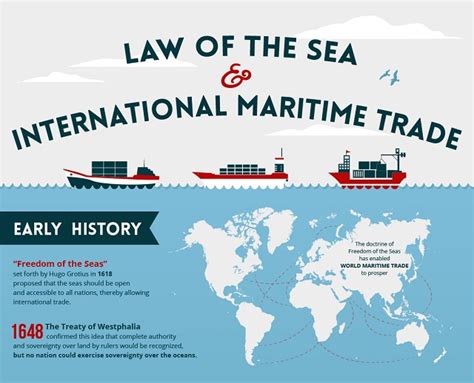
- Greetings, Readers!
- Sources of Maritime Law
- Areas of Maritime Law
- Types of Maritime Claims
- Jurisdiction in Maritime Law
- Conclusion
-
FAQ about Basics of Maritime Law
- What is maritime law?
- What are the main sources of maritime law?
- What types of cases are handled by maritime law?
- Who enforces maritime law?
- What is the principle of "general average"?
- What is "limited liability" in maritime law?
- What is "maritime lien"?
- What are "charterparties"?
- What is "salvage"?
- What are "bills of lading"?

Greetings, Readers!
Welcome to our comprehensive guide on the basics of maritime law. This field of law governs maritime activities, including commercial shipping, fishing, and recreational boating. Understanding these legal principles is crucial for ensuring safe and orderly operations at sea.
In this article, we will cover various aspects of maritime law, from its history and sources to its application in different areas. Whether you’re a seafaring professional, a legal practitioner, or simply curious about the laws that govern our oceans, this article will provide you with a solid foundation in maritime law.
Sources of Maritime Law
Maritime law has a rich history dating back centuries. Its origins can be traced to the ancient Greeks, Romans, and the maritime codes of medieval Europe. Over time, these principles evolved through international conventions, treaties, and national legislation.
Key Sources:
- International Conventions: The International Maritime Organization (IMO) plays a vital role in developing and enforcing international conventions related to maritime safety, pollution prevention, and labor standards.
- Treaties: Bilateral and multilateral treaties between nations establish legal frameworks for maritime activities, such as ship registration and navigation rights.
- National Legislation: Each country has its own maritime laws that govern domestic shipping, coastal waters, and exclusive economic zones.
Areas of Maritime Law
Maritime law encompasses a wide range of legal issues that arise in the maritime industry. Here are some key areas:
Commercial Shipping
This branch of maritime law regulates the transportation of goods and passengers by sea. It covers issues such as ship chartering, bills of lading, cargo insurance, and admiralty proceedings.
Marine Environmental Law
Protecting the marine environment is a critical aspect of maritime law. This area governs pollution prevention, waste disposal, and conservation of marine resources.
Offshore Energy Law
The exploration and exploitation of offshore oil and gas resources are regulated by maritime law. It covers issues such as drilling rights, environmental protection, and liability for accidents.
Types of Maritime Claims
Various types of legal claims can arise in maritime activities. Here are some common examples:
- Collision Liability: Claims for damages caused by ship collisions.
- Salvage Claims: Claims for compensation for services rendered in rescuing ships or property at sea.
- Cargo Damage Claims: Claims for loss or damage to cargo during transportation.
- Personal Injury Claims: Claims for injuries sustained by seafarers or passengers.
Jurisdiction in Maritime Law
Determining which court or legal system has jurisdiction over maritime claims can be complex. Factors such as the location of the incident, the nationality of the vessels involved, and the type of claim must be considered.
- Admiralty Jurisdiction: Courts with admiralty jurisdiction have specialized knowledge and expertise in maritime law.
- State and Federal Jurisdiction: In some cases, state or federal courts may have concurrent jurisdiction over maritime claims.
- International Tribunals: International tribunals, such as the International Tribunal for the Law of the Sea (ITLOS), may adjudicate disputes between nations.
Conclusion
Maritime law is a complex and ever-evolving field that plays a vital role in regulating maritime activities worldwide. Understanding the basics of this legal framework is essential for ensuring safety, protecting the environment, and resolving disputes.
We invite you to explore other articles on our website for further insights into maritime law and its practical applications. By staying informed about these legal principles, you can navigate the maritime industry with confidence and contribute to a safe and sustainable ocean environment.
FAQ about Basics of Maritime Law
What is maritime law?
Maritime law, also known as admiralty law, is a body of laws and regulations that govern activities related to the sea and waterways, including navigation, shipping, shipbuilding, marine insurance, and maritime commerce.
What are the main sources of maritime law?
The main sources of maritime law include international treaties, national legislation, and judicial decisions. In many jurisdictions, maritime law is codified in statute law.
What types of cases are handled by maritime law?
Maritime law handles cases involving collisions at sea, maritime salvage, piracy, marine pollution, and disputes between ship owners, charterers, and other parties involved in maritime activities.
Who enforces maritime law?
Maritime law is enforced by national authorities, such as coast guards and maritime police, as well as international organizations like the International Maritime Organization (IMO).
What is the principle of "general average"?
General average is a principle in maritime law that distributes losses or expenses incurred for the benefit of all parties involved in a sea voyage among all those who benefit from it.
What is "limited liability" in maritime law?
Limited liability protects ship owners from being held personally liable for certain maritime accidents or losses that exceed the value of their vessel and other assets.
What is "maritime lien"?
A maritime lien is a legal claim that allows a party to secure payment for services or materials provided to a vessel by taking possession of it.
What are "charterparties"?
Charterparties are contracts that govern the leasing of a vessel or its space for transportation of goods or passengers.
What is "salvage"?
Salvage is the act of saving or rescuing a vessel or its cargo from danger at sea. The salvor is entitled to a reward for their efforts.
What are "bills of lading"?
Bills of lading are documents issued by carriers that acknowledge receipt of goods for transportation and serve as evidence of the contract of carriage.



